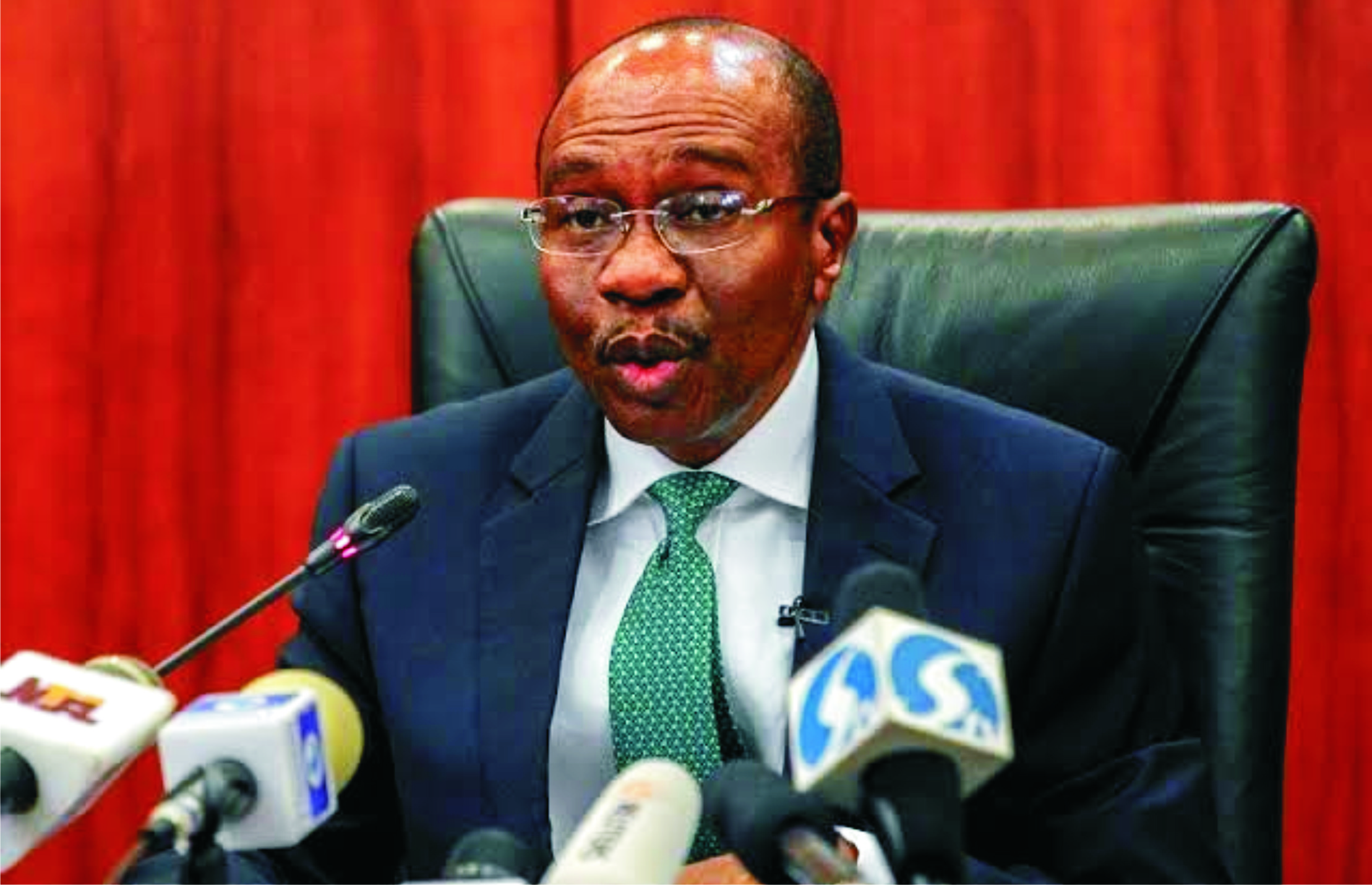Business
Expert Faults CBN’s Ban Of FX Sale To BDC

An economist and lecturer at the Department of Economics, Federal University, Wukari in Taraba State, Dr Emma Okeh, has criticised the Central Bank of Nigeria’s (CBN) ban on the sale of Foreign Exchange (FX) to the Bureau De Change (BDC)
The university don chided the Federal Government for doing ‘trial and error’ with the nation’s monetary policy through the CBN.
He said that the possibility of the Federal Government reversing the policy in a couple of months was high, adding this will trigger inflation in the market.
Okeh, while interacting with the aviation correspondents in Port Harcourt, last Friday, noted that the economy was already dollarised, saying the new policy will reduce the circulation of dollar in the local economy and increase the prices of goods in the market.
“The response of prices will be instantaneous, particularly on items like electronics, because sellers will anticipate an increase in the cost of importing new items”, he said.
The economist also said the policy might lead to hoarding of foreign currencies, as some of the Bureau De Change operators may be privy to the decision to ban sales to them.
“Traders will anticipate an increase, in the short run, the commodity market will respond. This affects all the sectors on the immediate. People will react. The economy is dollarised already. The circulation will dwindle. Some are waiting for this policy to make profit. Some could be privy to this information. Hoarding will be an issue. This will be a big blow to the economy.
“Before you carry out any policy, it is expected you put a few things in place. Putting this policy out, what are the regulations put in place to regulate prices?
“This administration has been doing trial and error. In the long run, the economy is still oil-dependent. As you continue to import items, the demands for dollar and other currencies will continue to increase against the Naira.
“In the next couple of months, the policy will probably be reverted. The aftermath has not been well evaluated”, Okeh posited.
According to him, inflation in Nigeria stands at 17.75% in the month of July and scarcity of Forex Exchange in the parallel market could lead to higher demands with the resultant effect on commodities.
Most goods, he said, were imported into the country, hence, the demand for certain foreign currencies will increase and ultimately affect the prices of imported goods.
“Before this announcement of BDC, we already had spikes in the prices of vehicles. With this ban, only God can tell”, he said.
The CBN governor, Godwin Emefiele had, last Tuesday, announced the ban of sale of FX to BDC in an effort to sustaining the gaps in the foreign currency market.
According to Emefiele, the BDC are now agents that facilitate graft and curruption in the country, and that CBN can not continue with the bad practice.
Business
PETROAN Accuses Crude Oil Producers Of Diverting 500,000bpd Refineries-Bound Product
The Petroleum Products Retail Outlet Owners Association of Nigeria (PETROAN) has alleged that oil producers were diverting 500,000 barrels per day (bpd) of crude oil intended for local refineries.
The claim was made public on Wednesday amid ongoing discussions about the challenges facing Nigeria’s refining sector.
The association’s publicity secretary, Joseph Obele, who made this known, emphasised that the diversion of the crude allocations has led to the abandonment of many refineries, which were struggling to operate due to insufficient feedstock.
Obele accused oil producers of prioritising quick foreign exchange gains over compliance with domestic supply obligations.
The PETROAN spokesman commended the Nigerian Upstream Petroleum Regulatory Commission (NUPRC) for recently banning the export of crude oil allocated for domestic refining, a move they believed will enhance local refining capabilities and reduce the nation’s reliance on imported petroleum products.
He said, “Approximately 500,000 barrels of crude oil per day are allocated for domestic refining, but these volumes often find their way to the international market”.
The situation has prompted calls for immediate action against both producers and companies that fail to adhere to the new regulations.
The issue has sparked a heated debate among industry stakeholders. While oil producers argue that local refineries often do not meet commercial terms, refiners counter that producers are neglecting their supply commitments in favour of international markets.
This ongoing blame game complicates efforts to stabilize local crude supply and improve refinery operations.
PETROAN’s national president, Billy Gillis-Harry, urged swift enforcement of the export ban to ensure that local refineries receive their fair share of crude oil.
He expressed optimism that this policy could lead to a more self-sufficient refining sector in Nigeria, ultimately benefiting consumers through reduced prices and improved product availability.
Business
FG Targets Reduction In External Borrowing
The Federal Government has said it is committed to reducing reliance on external debt financing and promoting private sector-driven economic growth as part of its strategy for long-term fiscal stability.
The Minister of Finance and Coordinating Minister of the economy, Wale Edun, who made this known during a meeting with World Bank executive director, Dr. Zainab Shamsuna Ahmed, emphasised Nigeria’s shift towards alternative financing sources and investment-friendly policies.
He acknowledged the World Bank’s role in Nigeria’s development but stressed that the government is prioritizing a business-friendly environment to encourage private-sector investments.
“Our focus is on reducing dependency on external borrowing while ensuring that Nigeria’s economic policies foster long-term, private-sector-led growth”, he stated.
In his response, Dr. Ahmed, who previously served as Nigeria’s Minister of Finance, commended the country’s ongoing macroeconomic reforms, which she said have boosted fiscal stability and investor confidence.
Ahmed also noted the World Bank’s recent financial reforms, which have increased its lending capacity, making an additional $150 billion available over the next decade.
A key highlight of the meeting was Nigeria’s role in “Mission 300”, the World Bank’s initiative to provide electricity access to 300 million Africans.
Edun reaffirmed that power infrastructure remains a top priority for the government, as it is critical to economic growth, industrial expansion, and private-sector competitiveness.
“Electricity access is a game-changer for Nigeria’s economy, and we are committed to playing a leading role in Mission 300 to ensure sustainable development”, he said.
He further emphasised that President Bola Tinubu remains dedicated to strengthening Nigeria’s economic foundation, shifting away from external borrowing, and fostering a resilient, investment-driven economy.
Business
Dangote Refinery Exports Jet Fuel To Saudi Aramco
Dangote Petroleum Refinery had exported two jet fuel cargoes to Saudi Aramco, the world’s largest oil producer and a leading integrated oil and gas company globally.
Saudi Aramco is a majorly state-owned petroleum and is the national oil company of Saudi Arabia.
President of Dangote Group, Aliko Dangote, disclosed this during a visit by a team of the Nigerian Economic Summit Group (NESG) to both Dangote Fertiliser Limited and the Dangote Petroleum Refinery & Petrochemicals in Ibeju Lekki, Lagos.
He said exporting products to the global markets, especially Saudi Aramco, was because of his refinery’s world-class standards and advanced technology.
“We are reaching the ambitious goals we set for ourselves, and I’m pleased to announce that we’ve just sold two cargoes of jet fuel to Saudi Aramco”, he said.
According to him, since it began in 2024, the refinery has steadily increased its output, reaching 550,000 barrels per day.
While commending Aliko Dangote for establishing the $20 billion refinery – the largest single-train refinery in the world – NESG Chairman, Mr. Niyi Yusuf, stated that Nigeria needs more investments of this calibre to reach its $1 trillion economic goal.
“To achieve a $1 trillion economy, much of that must come from domestic investments. I joked during the bus ride that while others are dredging to create islands for leisure, you’ve dredged 65 million cubic tonnes of sand to create a future for the country.
“This refinery, fertiliser plant, petrochemical complex, and supporting infrastructure are monumental.
“My hope is that God will grant you the strength, courage, and health to realise your ambitions and that in your lifetime, a new Nigeria will emerge”.
Yusuf emphasised that such local industries are essential to Nigeria’s industrialisation and will help foster the growth of Small and Medium Enterprises (SMEs).
He said NESG would continue to advocate for improved investment climate to attract entrepreneurs, boost development, ensure food security, and address insecurity.
He lamented that Nigeria has become a dumping ground for foreign products, stressing that the country must support its entrepreneurs to become a global player.
“It’s inconceivable that a nation of over 230 million people, with an annual birth rate higher than the total population of some countries, is still dependent on imports to feed its citizens”, he stated.
Yusuf also praised Dangote’s bold vision for making Nigeria self-sufficient in several key sectors.
“The NESG is grateful, and I believe the nation is as well. This refinery represents the audacity of courage. It takes immense effort to do what you’ve done and still be standing and smiling.
-
Niger Delta2 days ago
A’Ibom CP Cautions Youth Against Violence In Oil Producing Communities
-
Sports2 days ago
IBF Cancels purse bid for Ajagba, Bakole elimination bout
-
Politics2 days ago
Edo Gov’ship: PDP, Ighodalo Close Case After 19 Witnesses At Tribunal
-

 Entertainment37 mins ago
Entertainment37 mins agoNollywood Mourns Veteran Actor, Columbus Irisoanga’s Passing
-
News2 days ago
RSU Lecturer Unveils Research Innovation On Soap Production
-
Nation2 days ago
Commissioner Inaugurates Street Lights In 16 Communities
-
Niger Delta2 days ago
ThisDay award, Affirmation Of Oborevwori’s Performance — Commissioner
-
Sports2 days ago
NCF targets success after W’Cup outing

